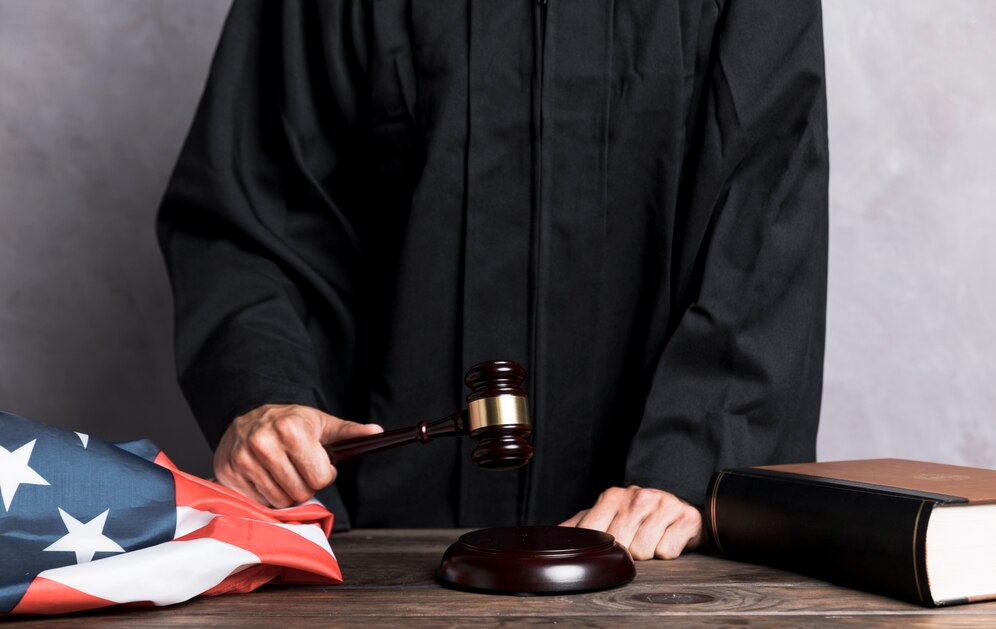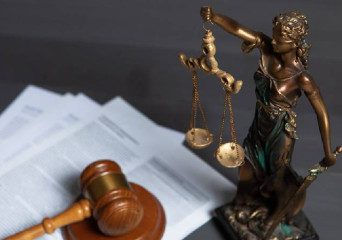
Table Of Contents
- Arrest And Booking: Navigating The Initial Phases Of Legal Proceedings
- Initial Appearance And Arraignment: Facing The Legal System Head-On
- Presentation Before A Magistrate Or Judge:
- Formal Reading Of Charges:
- Entering A Plea (Guilty, Not Guilty, Or No Contest):
- Consideration Of Bail Conditions:
- Preliminary Hearing/Grand Jury: Unveiling The Foundation Of Legal Proceedings
- Review Of Evidence By A Grand Jury (If Applicable):
- Determination Of Probable Cause:
- Issuance Of Indictment Or Charging Document:
- Pre-Trial Motions And Discovery: Shaping The Landscape Of Legal Strategy
- Filing And Responding To Motions By Defense And Prosecution:
- Exchange Of Evidence And Information:
- Negotiations And Possible Plea Bargains:
- Trial: A Crucible Of Legal Proceedings
- Right To A Speedy Trial:
- Jury Selection:
- Examination Of Witnesses:
- Closing Arguments In The Criminal Court Process:
- Jury Deliberation And Verdict:
- Sentencing: Navigating Consequences And Legal Penalties
- If Found Guilty, The Sentencing Phase Begins:
- Presentation Of Mitigating Or Aggravating Factors:
- Imposition Of Fines, Probation, Jail/Prison Time, Or Other Penalties:
- Appeals Process: Seeking Legal Redress
- Grounds For Appeal:
- Filing An Appeal:
- Review By Appellate Courts:
- Key Takeaways: Recap Of Key Stages In The Criminal Court Process
- Encouragement For Seeking Legal Advice
- Importance Of Understanding Rights And Responsibilities Throughout The Process
Navigating The Complex Terrain Of The Criminal Court Process
In the labyrinthine realm of the criminal justice system, individuals find themselves traversing a multifaceted journey from the moment of arrest to the culmination of a trial. Understanding the intricacies of the Criminal Court Process is not only a matter of legal literacy but a crucial empowerment tool for those entangled in its web.
This guide, brought to you by our experienced criminal law firm, aims to provide a comprehensive overview of the stages inherent in a criminal case, shedding light on the significance of comprehending each phase.
As we embark on this exploration, it becomes evident that knowledge of the Criminal Court Process is not just a legal imperative; it is a beacon guiding individuals through the pivotal stages that shape the outcome of their legal journey.
Arrest And Booking: Navigating The Initial Phases Of Legal Proceedings

- The Initial Encounter with Law Enforcement:
From the moment of contact with law enforcement, the dynamics of a legal journey are set into motion. The initial encounter, often tense and disconcerting, marks the starting point of the criminal justice process.
- The Booking Process:
Following an arrest, individuals are subjected to the booking process. This administrative procedure involves recording personal information, fingerprints, and often, a mugshot. It establishes an official record of the arrest.
- Notification of Miranda Rights:
A critical juncture in the arrest process involves the notification of Miranda rights. Suspects must be informed of their right to remain silent and the right to legal representation. This notification safeguards an individual’s constitutional rights during police interrogations.
- Potential Release Options, a part of the criminal court process:
Post-booking, individuals may explore various release options. This may include being released on bail, on recognizance, or through a pre-trial release program. Understanding these options becomes crucial as they directly impact the period leading up to the trial.
Initial Appearance And Arraignment: Facing The Legal System Head-On

Presentation Before A Magistrate Or Judge:
The initial appearance brings individuals before a magistrate or judge. This formal introduction to the legal proceedings involves informing the accused of the charges filed against them and the basic rights they possess.
Formal Reading Of Charges:
A pivotal moment in the arraignment process is the formal reading of charges. This not only ensures that the accused is fully aware of the allegations but also initiates the legal proceedings officially.
Entering A Plea (Guilty, Not Guilty, Or No Contest):
The accused is then allowed to enter a plea, declaring whether they consider themselves guilty, not guilty, or opt for a no-contest plea. This declaration sets the stage for the subsequent legal proceedings.
Consideration Of Bail Conditions:
During arraignment, the court considers bail conditions. Bail, if granted, allows individuals to secure their release from custody while awaiting trial. The conditions may vary, and their imposition depends on factors such as the severity of the charges and flight risk.
Understanding the nuances of the arrest and arraignment phases is paramount for individuals navigating the criminal justice system. From the initial encounter with law enforcement to the critical decisions made during arraignment, each step shapes the trajectory of the legal journey.
Preliminary Hearing/Grand Jury: Unveiling The Foundation Of Legal Proceedings

Review Of Evidence By A Grand Jury (If Applicable):
In certain cases, a grand jury is convened to review evidence before formal charges are filed. This secretive process involves presenting evidence to a panel of jurors to determine if there is enough probable cause to proceed with a trial.
Determination Of Probable Cause:
The crux of the preliminary hearing grand jury process or Criminal Court Process is the determination of probable cause. The legal standard requires sufficient evidence to suggest that a crime has been committed and that the accused likely committed it.
Issuance Of Indictment Or Charging Document:
Following a positive determination of probable cause, the grand jury issues an indictment or a charging document. This formalizes the charges against the accused, marking a transition from investigation to formal legal proceedings.
Pre-Trial Motions And Discovery: Shaping The Landscape Of Legal Strategy
Filing And Responding To Motions By Defense And Prosecution:
Before trial, both the defense and prosecution may file motions to address legal issues or seek specific actions from the court. Responses to these motions set the stage for legal arguments and shape the parameters of the upcoming trial.
Exchange Of Evidence And Information:
The discovery phase involves the exchange of evidence and information between the opposing parties. This ensures transparency in the legal process and allows each side to be aware of the evidence the other plans to present during the trial.
Negotiations And Possible Plea Bargains:
During pre-trial motions and discovery, negotiations may take place between both parties, mainly the prosecution and defense. This can lead to the exploration of plea bargains—an agreement where the accused pleads guilty to a comparatively lower charge in exchange for a more lenient sentence.
Trial: A Crucible Of Legal Proceedings

Right To A Speedy Trial:
The right to a speedy trial ensures that the accused is not subject to prolonged pre-trial detention. This constitutional right aims to safeguard individuals from extended periods of uncertainty and deprivation of liberty.
Jury Selection:
The process of selecting a jury is a meticulous undertaking. Attorneys from both sides, along with the judge, question potential jurors to ensure an impartial and unbiased panel that will fairly assess the evidence presented during the trial.
- Presentation of Evidence: A major section of the Criminal Court Process
The core of the trial involves the presentation of evidence by both the prosecution and defense. This includes witness testimony, documents, and exhibits that aim to establish or challenge the facts of the case.
Examination Of Witnesses:
Attorneys conduct examinations of witnesses to elicit testimony that supports their case. The prosecution begins with a direct examination, followed by the defense’s cross-examination to scrutinize the credibility and consistency of witness statements.
Closing Arguments In The Criminal Court Process:
Attorneys present closing arguments summarizing the evidence and legal arguments. This persuasive presentation aims to leave a lasting impression on the jury and guide them toward a particular interpretation of the facts.
Jury Deliberation And Verdict:
The fate of the accused rests in the hands of the jury during deliberation. They review the evidence, consider the legal instructions provided by the judge, and ultimately reach a verdict—guilty or not guilty.
The journey through the legal system unfolds through these pivotal phases, each playing a distinctive role in shaping the outcome of a criminal trial. From the foundational steps of a preliminary hearing to the culmination of a trial, these processes collectively define the trajectory of justice.
Sentencing: Navigating Consequences And Legal Penalties

If Found Guilty, The Sentencing Phase Begins:
Upon a verdict of guilty, the legal journey transitions to the sentencing phase. This critical stage determines the penalties and consequences the convicted individual will face.
Presentation Of Mitigating Or Aggravating Factors:
Attorneys on both sides present factors that may mitigate or aggravate the severity of the sentence. Mitigating factors aim to lessen the culpability while aggravating factors emphasize the severity of the offense.
Imposition Of Fines, Probation, Jail/Prison Time, Or Other Penalties:
The sentencing judge considers various factors to determine an appropriate punishment. This may include imposing fines, ordering probation, or prescribing jail or prison time. The goal is to balance justice with rehabilitation and public safety.
Appeals Process: Seeking Legal Redress

Grounds For Appeal:
The appeals process provides a mechanism for individuals to challenge a conviction or the severity of a sentence. Grounds for appeal may include legal errors during the trial, new evidence, or claims of constitutional violations.
Filing An Appeal:
Initiating an appeal involves filing a formal request with the appellate court. This document outlines the specific legal issues or errors that warrant a review of the original trial’s outcome. It’s an unalienable part of the criminal court process.
Review By Appellate Courts:
Appellate courts review the appeal to assess whether legal errors occurred during the trial or if there is a basis for reconsidering the verdict or sentence. The appellate process focuses on matters of law rather than re-evaluating evidence or witness testimonies.
Key Takeaways: Recap Of Key Stages In The Criminal Court Process
This guide has explored the intricate journey from arrest to trial, shedding light on crucial stages such as arrest, arraignment, trial, and sentencing. Each phase plays a pivotal role in shaping the outcome of a criminal case.
Encouragement For Seeking Legal Advice
Navigating the complexities of the criminal justice system is an arduous task. Seeking legal advice from a qualified attorney is not only a right but a prudent step. Legal professionals can provide guidance, advocate for rights, and navigate the intricacies of the legal process.
Importance Of Understanding Rights And Responsibilities Throughout The Process

Knowledge of rights and responsibilities at every stage of the criminal court process is empowering. Understanding legal nuances ensures informed decision-making and active participation in one’s defense. This awareness is not just a legal imperative but a fundamental aspect of safeguarding individual liberties within the justice system.
Read Also:









